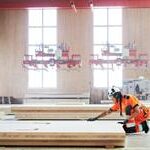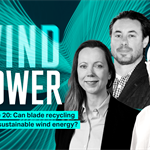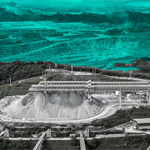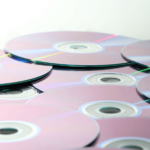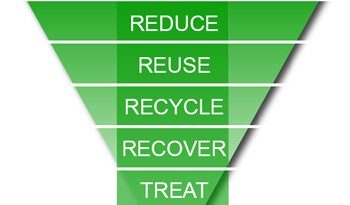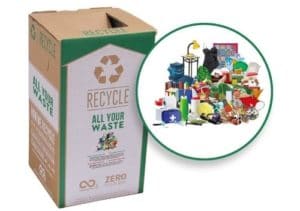Copper Recycling: Key To A More Sustainable Future 🔌
Energy Disrupter
Copper Recycling 🔌: Copper is essential to modern infrastructure, powering our homes and devices. Recycling this type of material supports clean energy and sustainability, reducing waste and conserving resources. Let’s explore what copper recycling is, why it matters and its role in shaping a greener future.
Copper has a lot of uses, not just in today’s world, but also in the past. 10,000 years ago, people used copper to make coins and various decorations. Ancient times saw people use it to create various tools such as axes and knives for chopping and hunting.
Fast forward to the present, we still use it to produce a lot of products. Here are just some of its applications to our daily lives:
- Electrical Wiring and Power Systems: Vital for power grids, transformers and household wiring.
- Electronics: Found in smartphones, computers and other devices.
- Plumbing: Used in pipes and fixtures for its durability and resistance to corrosion.
- Transportation: Critical in electric vehicles (EVs), trains and aeroplanes.
- Renewable Energy: Essential in solar panels, wind turbines and battery systems.
- Industrial Machinery: Utilised in motors, generators and heavy equipment.


[embedded content]
Obviously, copper has been an important metal for thousands of years, and nothing has changed even today. We still need it now, much more than we did in the past, even.
However, the acquisition of copper involves mining. As we all know, Copper mining harms the environment by degrading land and biodiversity, producing toxic chemicals and contributing to water and air pollution.
Now, what is the best way to avoid – or at the very least, lessen – the need to mine copper? Simple, the answer to that would be copper recycling.
What do we need to know about copper recycling? Let’s cover more below.
>Download Now: Free PDF Business Owners Guide To Commingled Recycling Bin Services
The basics of copper recycling
What is copper recycling? Copper recycling involves recovering and reprocessing copper from discarded products or industrial waste. This process allows copper to be reused without significant degradation of its properties, making it one of the most recyclable materials.
Now, how does copper recycling work?
Copper recycling begins with collecting and sorting used copper materials, such as wires and pipes, to separate the copper from other metals and contaminants.
The copper is then shredded or crushed into smaller pieces for easier processing. It undergoes cleaning to remove impurities like plastics or oils, using methods such as heating or chemical treatments.
Next, the cleaned copper is melted in a furnace at high temperatures, typically in an oxygen-rich environment, allowing impurities to oxidise. It is then purified through electrolytic refining, further removing any remaining contaminants.
Finally, the purified copper is cast into new shapes like ingots or billets, ready to be used in the manufacturing of new products like electrical wires, pipes or electronics. Recycling copper helps conserve resources and reduces environmental harm compared to mining.
Why is copper recycling important?
Copper recycling is important due to a number of reasons:
Environmental benefits
- Reduces mining activities, which can cause deforestation, soil erosion and water pollution.
- Lowers greenhouse gas emissions associated with copper extraction and processing.
Economic advantages
- Recycling copper is more cost-effective than mining and refining new ore.
- Creates jobs in the collection, processing and manufacturing industries.
Resource conservation
- Copper is a finite resource. Recycling ensures a steady supply for future generations without depleting natural reserves.
Supports the clean energy transition
- Renewable energy systems and EVs require significantly more copper than traditional technologies. Recycling helps meet this rising demand sustainably.
Speaking of energy, let’s move and cover more about the energy saved by recycling copper metal.
Energy savings through copper recycling
Copper recycling is not only energy-efficient but also crucial for supporting the global transition to clean energy. Recycling copper saves up to 85 per cent of the energy compared to extracting and processing virgin copper from ore.
Mining copper requires energy-intensive steps like blasting, crushing and refining, whilst recycling simply involves melting down scrap copper, consuming far less energy.
This energy efficiency significantly reduces carbon emissions, which is vital for addressing climate change.
According to Recycling Today, a recent report by the World Resources Institute (WRI) underscores the importance of copper recycling in this context. As renewable energy systems and electric vehicles (EVs) demand more copper—EVs alone require 2-3 times more copper than traditional vehicles—the need for recycled copper grows.
The report also highlights the increasing potential of electronic waste (e-waste), which contributes to 62 million tons of recyclable copper annually.
However, challenges remain, such as the mismatch between regions generating copper scrap and those processing it.
To improve efficiency, the report recommends expanding environmentally friendly refining capacities, increasing e-waste collection, and fostering collaboration between manufacturers and recyclers.
Waster’s thoughts
To conclude what we mentioned above, copper recycling is a vital component of our efforts to build a sustainable, energy-efficient future.
As a material that has shaped human history for thousands of years, copper continues to play a central role in modern infrastructure, from electronics to renewable energy systems.
However, the environmental impact of copper mining is significant, making recycling an essential alternative to help reduce ecological harm.
Recycling copper not only conserves natural resources but also saves a remarkable amount of energy—up to 85 per cent compared to mining. This energy efficiency, combined with a reduction in carbon emissions, makes copper recycling a key player in addressing climate change.
Moreover, with the growing demand for renewable energy technologies and electric vehicles, the need for recycled copper will only increase.
By embracing copper recycling, we can support a cleaner, greener future whilst ensuring that this precious resource is available for generations to come.
Now, let’s continue to prioritise recycling efforts, innovate in e-waste management and collaborate across industries to make copper recycling a cornerstone of sustainability!
Contacting Waster
Looking for a specific bin service? Check out our waste recycling shop and find the best deals in terms of pricing and services.
Also, please call 1300 WASTER (1300 927 837), or email us at [email protected] if you have any further questions.



